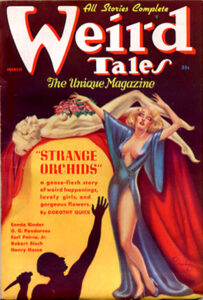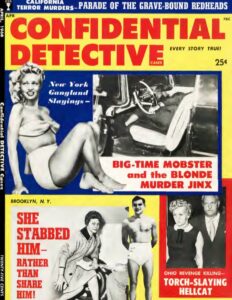by James Scott Bell
@jamesscottbell
 I read a literary novel a few weeks ago, and it frustrated the heck out of me. There was a powerful story wanting to bust out, but I felt it was hemmed in by the author trying too hard to be, well, “literary.” There was an emphasis on style, some of it quite good. But the scenes didn’t grab me. The author wanted things implied rather than rendered dramatically on the page. That’s often a nice touch, but not for a whole book. There was too much description and narrative summary, and not enough on-the-page action and dialogue. Any momentum was stopped a few times with flashbacks (Chapter 2 being one of them; not a great place for a flashback ). The ending was ambiguous, and left me feeling nothing.
I read a literary novel a few weeks ago, and it frustrated the heck out of me. There was a powerful story wanting to bust out, but I felt it was hemmed in by the author trying too hard to be, well, “literary.” There was an emphasis on style, some of it quite good. But the scenes didn’t grab me. The author wanted things implied rather than rendered dramatically on the page. That’s often a nice touch, but not for a whole book. There was too much description and narrative summary, and not enough on-the-page action and dialogue. Any momentum was stopped a few times with flashbacks (Chapter 2 being one of them; not a great place for a flashback ). The ending was ambiguous, and left me feeling nothing.
Other than that, it was a pretty good book.
So what is literary fiction anyway? I once asked a respected editor for a definition. With a wry smile, he said, “Fiction that doesn’t sell.” Fact check: Mostly true. For example, most novels nominated for the National Book Award top out at four or five thousand units. Which is not a knock on literary fiction. Books are written for a variety of reasons, and authors do best when they write what they’re moved to write. It’s just that the other side of the fence is called “commercial fiction” for a reason.
One source states: “Literary fiction explores the human condition. While genre fiction (as a whole) seeks to distract the reader through light entertainment, literary fiction is much more introspective in its objective. Literary fiction as a whole wants to make sense of the world around us by exploring the human condition.”
That seems to me inadequate. The best genre fiction also explores the human condition, as in, say, Michael Connelly. Indeed, I have long held that high school reading lists would be better off ditching The Great Gatsby in favor of The Maltese Falcon. The latter is all about the human condition—lust, avarice, greed, obsession, and lies. Best the kids learn about politicians in tenth grade.
Perhaps someone will say literary fiction is more about character, and genre fiction is more about plot. I say that some literary fiction could do with more plot, and some commercial fiction with more character.
In short, I have no idea how to define literary fiction. Maybe it’s best to echo what Supreme Court Justice Potter Stewart said in another context: “I know it when I see it.” (Jacobellis v. Ohio, 1964).
There is good and bad literary fiction, and a bunch in between. Judgment here is a matter of taste, of course. But I will venture the thought that “bad” literary fiction stresses style so much that it sacrifices story. It tells us more about the author than it does about the characters. It can feel too much like an attempt to impress. (If you want to do a deep dive on this topic, then pack a lunch and read the controversial article “A Reader’s Manifesto.”)
“Good” literary fiction, on the other hand, doesn’t set up stylistic roadblocks on the way to bonding us with a Lead character.
Someone might say that literary fiction doesn’t tie things up in a “neat little package.” The ending is thus more like “real life.”
You can botch this, too, as did the novel I referenced at the top. There’s a difference between an ambiguous ending that leaves you confused, and one that invites you to contemplation. In my book The Last Fifty Pages I discuss what I call “open-ended” endings. That’s where the author leaves us with a trajectory that we fill out for ourselves. For example, at the end of The Catcher in the Rye we wonder if Holden Caulfield has found a reason to go on living. Salinger doesn’t tell us. Instead, we are made participants in the dénouement.
An ambiguous ending, on the other hand, just leaves us flat.
So why did I write this reflection? I guess to make the point that fiction writing should always be in service of story. Don’t write to impress your readers; write to distress your characters.
I don’t know what else to say on the matter, so I leave it to you to pick up the discussion. Do you have a definition of “literary fiction”? Do you have a favorite writer of same? What draws you to him or her?
I apologize in advance if I’m not able to respond much today, as real life needs some tending.


